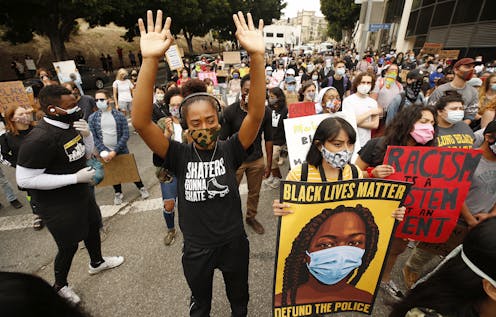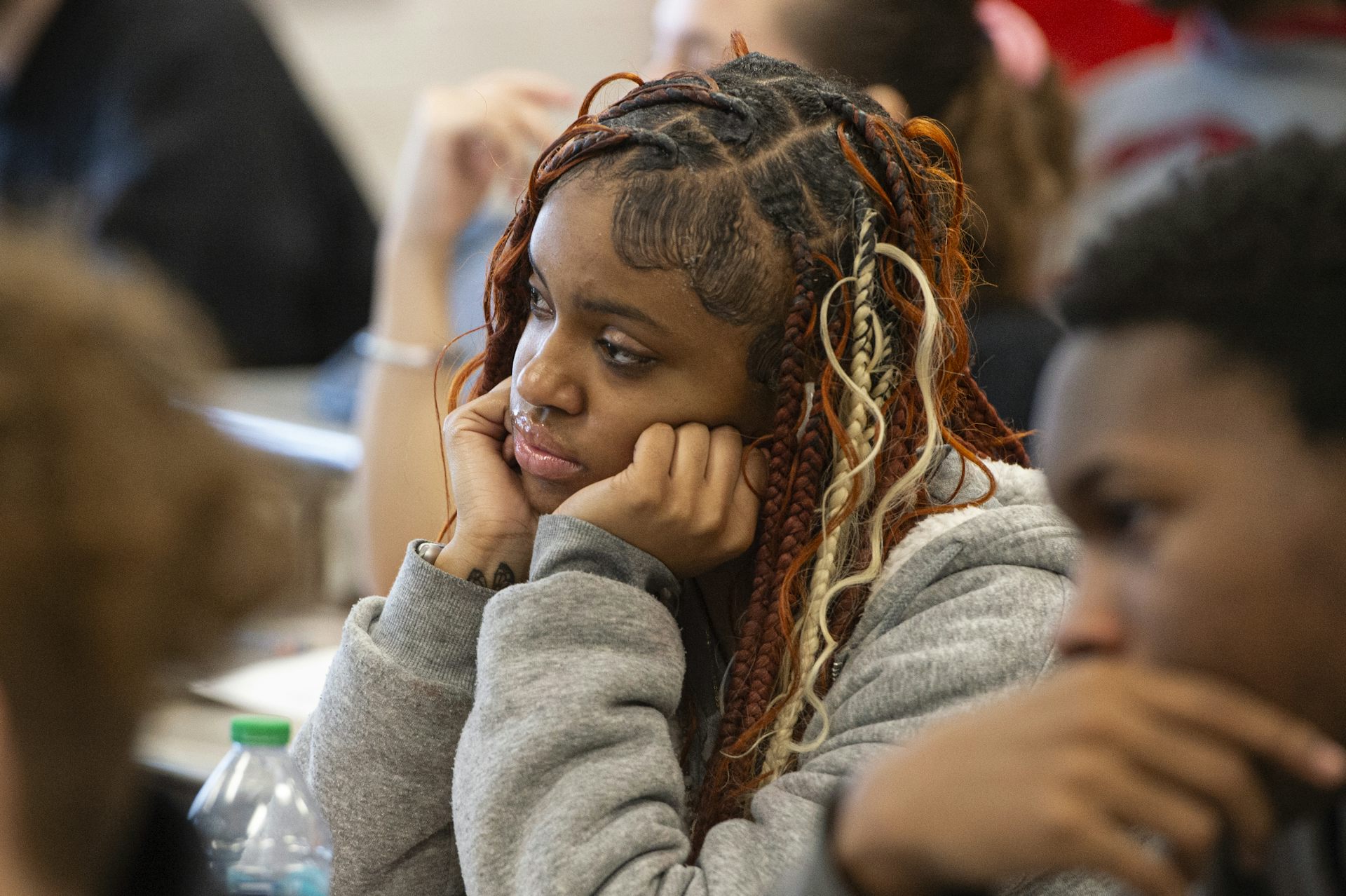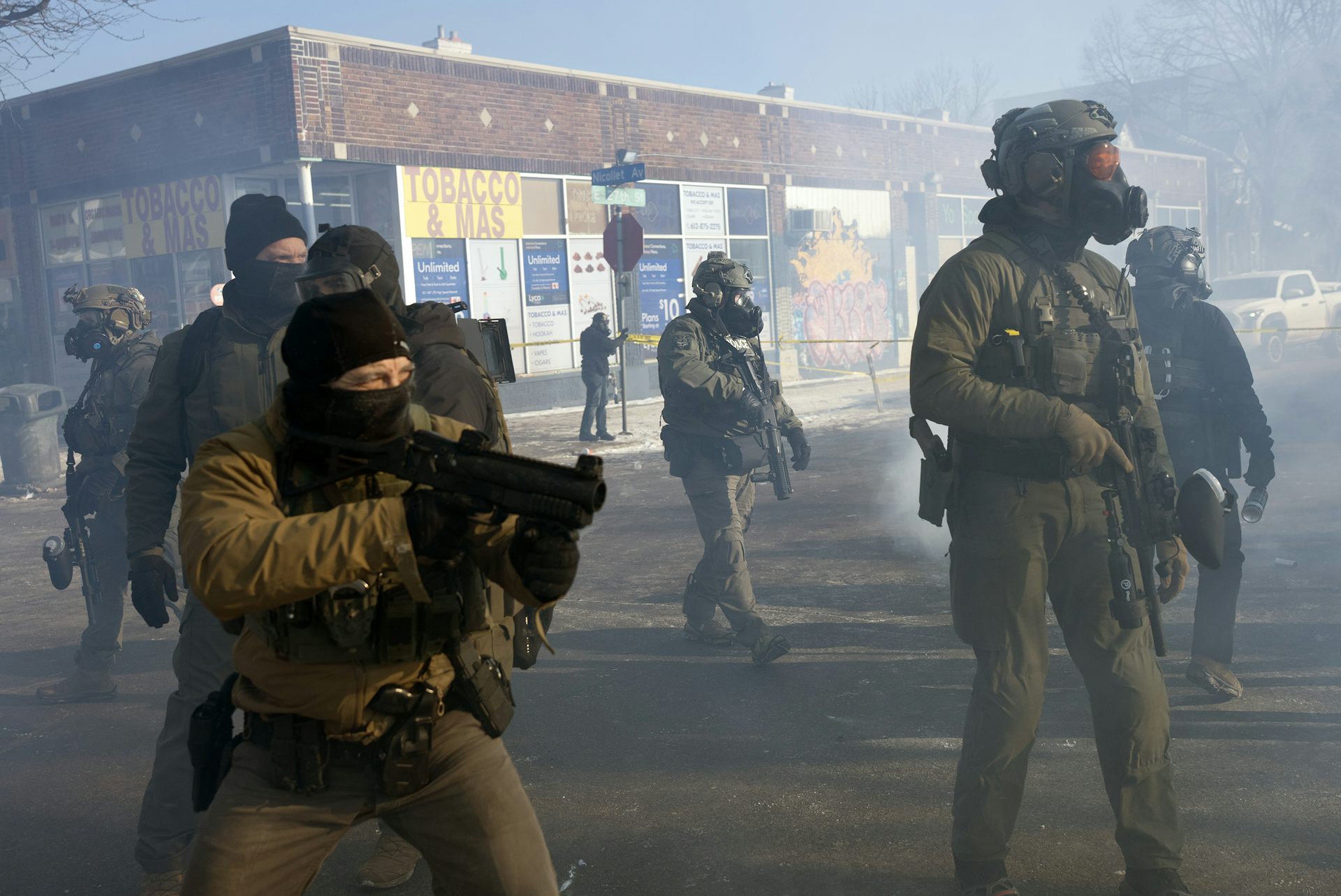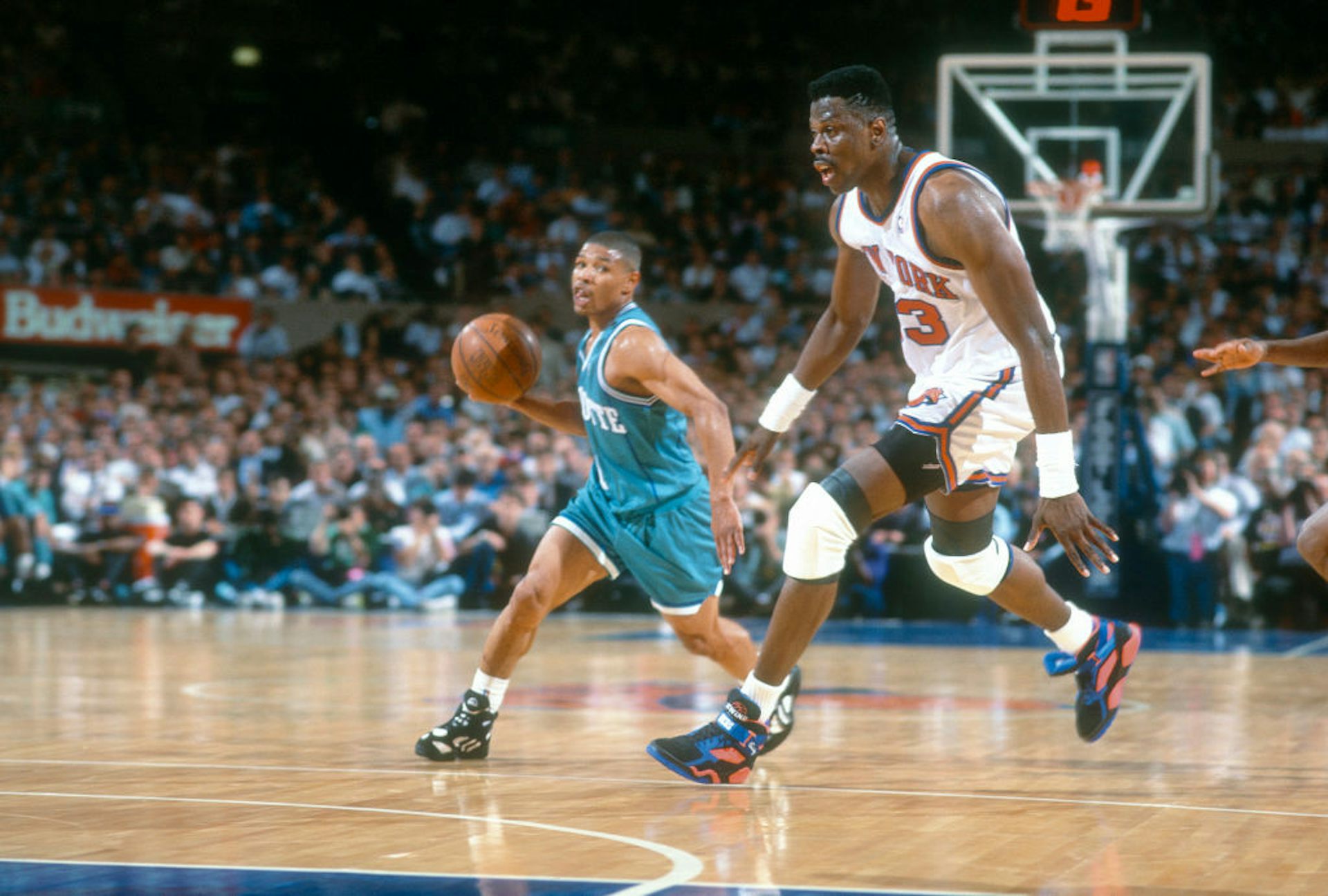In this era of protest over racism, will colleges embrace Black student activists?
A 2018 study found that Black activist students were less likely to get a response to their college inquiries. A sociologist discusses whether the protests of 2020 will do anything to change that.

In 2018, sociologist Ted Thornhill found that Black students who profess an interest in fighting racism were less likely to get a response from college admission officers than other Black students when inquiring about whether they would be a good fit for a particular college. In light of the nationwide anti-racism protests sparked by the May 25 killing of George Floyd, an unarmed Black man, when a police officer knelt on his neck for more than eight minutes, The Conversation reached out to Thornhill for his thoughts on whether Black activist students might be more welcome on campus now than before. The Q&A, edited for brevity, is below:
Do you expect wider acceptance of Black activism on college campuses?
Will some number of colleges and universities that did not embrace Black student activists previously do so now? Perhaps a few. However, I believe more will work, directly and indirectly, to ensure these students never set a foot on their respective campuses.
According to a recent Pew poll, 60% of whites support the Black Lives Matter movement. That means 40% do not. Certainly, some of those whites opposed or indifferent to Black Lives Matter work in higher education.
And the 60% who do support Black Lives Matter is likely somewhat inflated due to social desirability bias, which is when people give socially acceptable answers to research questions instead of saying how they really feel. In sum, there is good reason for Black Lives Matter student activists, especially those who have a high profile, to have reservations about the degree to which historically and predominantly white colleges and universities truly desire their presence on campus.
Many institutions have not even made a meaningful commitment to make significant anti-racist changes. Some of the anti-racist statements that colleges and universities have made since the torture and execution of George Floyd have been described by some academics as “toothless.”
Could activism actually help students?
Perhaps, at some institutions. There may be a net increase in the number of enthusiastic administrators and admissions counselors. But these might be at places that were considerably further along their way to becoming truly racially diverse, equitable and inclusive – in a word – anti-racist. To the extent that Black student activism is now viewed more favorably on campus, it might also depend on what kind of college we’re talking about, what part of the country it’s located in and the size and demographics of its student body.
How might COVID-19 come into play?
To the extent COVID-19 has increased predominantly white colleges’ and universities’ need for the tuition revenue generated by Black and brown bodies – whether in physical or virtual seats – they may accept a greater number of Black students than is typical for them. Still, while admission counselors are reviewing students’ files, I would expect that many will still view most favorably those Black students who are the least explicit about being racially conscious.
Some Black students may choose to hide their activism because they understand that most whites, including admissions counselors, likely view it in a negative light. In this instance, they would be doing so tactically, solely for the purposes of gaining admittance. Still, I suspect that Black students who are the most committed to Black Lives Matter activism will refuse to hide or downplay their activism.
Lastly, just because colleges might operate fully or largely online in the fall due to COVID-19, does not mean that racism will magically disappear from higher education. Racism is as likely to appear in the virtual classroom – and other parts of college that move online – as it did on the physical campus, so anti-racist activism will likely have to take place in the digital realm as well.
[Get the best of The Conversation, every weekend. Sign up for our weekly newsletter.]
Ted Thornhill does not work for, consult, own shares in or receive funding from any company or organization that would benefit from this article, and has disclosed no relevant affiliations beyond their academic appointment.
Read These Next
Revisiting the story of Clementine Barnabet, a Black woman blamed for serial murders in the Jim Crow
In 1912, a young Black woman’s supposed religious beliefs were quickly blamed to make sense of a terrifying…
3 generations of Black Philadelphia students report persistent anti-Black attitudes in schools
A sociologist explains how Black students in Philadelphia navigate racial prejudice and find affirmation…
Atrocities take place in democratic nations as well as autocratic ones – our database has logged the
Forty years of data suggests atrocities are on the rise globally.






